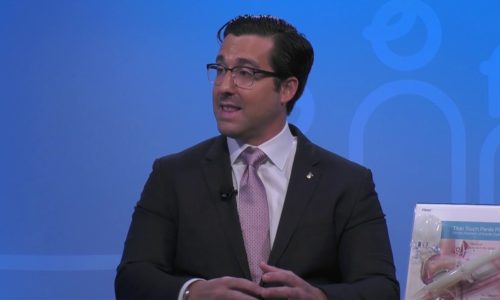Teen Depression Treatment |

By: Dr. Rachna Buxani-Mirpuri
LMHC, NCC, BC-TMH
When treating teens with depression, various approaches may be taken to ensure the most effective outcome. One such approach is Cognitive-Behavioral Therapy (CBT), which addresses negative thoughts and behaviors while building healthy coping mechanisms. Family and interpersonal therapy can also help improve communication and strengthen relationships. In more severe cases, medication may be needed to manage symptoms. However, it is important to note that personalized treatment plans and continued support are crucial in achieving a successful recovery.
Buxani Care specializes in treating teen depression with personalized approaches such as dialectical behavior therapy, and cognitive behavioral therapy. Our team creates a safe and supportive environment for teens to explore their emotions and develop coping strategies. We offer various resources and activities to reinforce their overall sense of connection and purpose and move towards a path to wellness.
Overview of Teen Depression
Teen depression is a serious mental health issue that affects millions of adolescents worldwide. It is marked by persistent sadness, loneliness, and hopelessness that can negatively impact an individual’s physical, social, and emotional well-being. Often, teens with depression struggle to cope with day-to-day life, leading to decreased performance in school and difficulty forming relationships. Other common signs of depression may include fatigue, irritability, isolation, changes in appetite, and difficulty concentrating. If left untreated, depression can affect a teen’s future.
Therefore, parents and caregivers need to be aware of the signs and symptoms of depression and seek professional help if needed. Treatment for teen depression typically combines therapy and medication to help adolescents develop coping strategies for negative emotions and thought patterns. Establishing a supportive, caring environment is also key to helping teens with depression heal and move forward. With the right help, teens can learn to manage depression and lead productive, fulfilling lives.
Causes: Identifying Risk Factors
There are a multitude of factors that can put teens at risk for depression. For example, certain environmental and genetic factors may increase the likelihood of depression in adolescents. Environmental factors, such as exposure to violence, bullying, poverty, and troubled family relationships, may contribute to depression in teens. Additionally, there may be genetic links to depression that are passed down through generations. Parents need to be aware of any of these issues to identify risk factors and take steps to ensure their teen’s mental health is protected.
Buxani Care uses assessments and examines social networks to identify depression risk factors in teens. In addition, therapists offer evidence-based therapies to help process emotions and improve coping skills.
Overview of Available Therapies
Buxani Counseling Care offers a variety of therapies for teens struggling with depression. Through one-on-one counseling sessions, teens can explore their symptoms and develop coping skills and strategies to manage depression. Group therapy sessions allow teens to connect with peers who share similar experiences. At the same time, family counseling supports a deeper understanding and communication between parents, teens, and other family members. Additionally, Buxani Counseling Care offers holistic play, and art therapy to help teens creatively explore their emotions. Therapeutic interventions aim to provide teens with the tools they need to overcome their depression and live a healthy and fulfilling life.
Therapy & Medication
When it comes to treating teen depression, both therapy and medication are effective options to consider. Therapy is a great way for teens to talk openly with a mental health professional about their feelings and difficulties and to gain the skills to cope with their depression. Cognitive behavioral therapy (CBT) is one of the most common therapies for teens with depression that helps them identify and change negative or unhealthy thinking and behaviors.
Medication is another way to treat teen depression, although it isn’t always necessary. If a teen’s depression is severe or acute, their doctor may recommend antidepressant medication. Antidepressant medications can help to reduce the symptoms of depression, such as low mood, lack of energy, and difficulty concentrating. However, it’s important to note that it can take several weeks for the medication to take effect, so it’s important to be patient and work closely with a doctor.
Self-Care Strategies
For teens dealing with depression, self-care is important to managing their mental health. Taking time to practice healthy habits and prioritize self-care can help teens cope with the difficult emotions associated with depression. Here are some strategies teens can try to help them take better care of themselves:
- Exercise: Regular physical activity can be a great way to manage stress and depression. Even just getting outside for a daily walk can make a difference.
- Reach Out: Talking to someone about how they’re feeling can be a helpful way to process emotions and get support. Teens can talk to a parent, mentor, or therapist about their feelings.
- Eat well: Eating healthy meals and snacks is important for a teen’s physical and mental health. Eating nutrient-rich foods can help boost energy and mood.
- Get organized: Staying organized with school and extracurricular activities can help teens feel more in control of their lives. In addition, setting goals and establishing routines can help teens feel more productive and motivated.
- Unplug: Taking a break from technology can be a great way to relax and recharge. Setting limits on electronics and social media use can help teens focus on other activities.
- By prioritizing self-care, teens can find healthier ways to cope with depression and create a healthier life balance.








